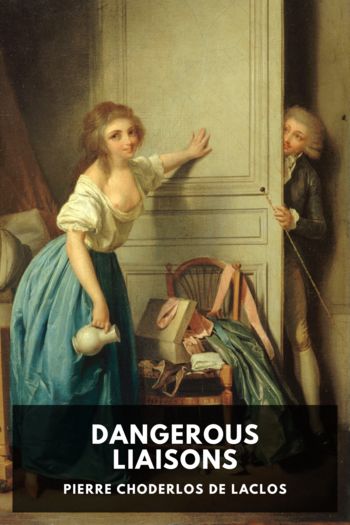Farewell, My Queen, Black Moishe [electric book reader .txt] 📗

- Author: Black Moishe
Book online «Farewell, My Queen, Black Moishe [electric book reader .txt] 📗». Author Black Moishe
I had to go outside; I had to breathe.
JULY 16, 1789
DAY
OUTSIDE, UNDER THE WINDOWS
OF THE QUEEN’S BEDCHAMBER
(between five and six o’clock in the morning).
Outside, I followed the Princes’ Wing of the château. I walked as if I knew where I was going, when in reality I had not the remotest idea. Over toward the Orangerie I saw a girl wearing a grumpy expression and with circles of fatigue under her eyes. She was coming away from the apartments of His Royal Highness the Count d’Artois. He may have been the only man, on that night, who found time for an interlude of pleasure before plunging back into the maelstrom. It was in his nature, like his taking lessons in tightrope walking instead of applying himself to serious studies. I have always been of two minds where the Count d’Artois is concerned: I felt, and continue to feel, strenuous moral disapproval, but I could not help being attracted. So I pointedly turned my steps away from that low creature, thus showing my contempt and at the same time refusing to concern myself with the libertine behavior of the King’s brother.
As for deciding which way to walk, no decision had been required of me. There was only one way my feet could take me: willy-nilly, I was now under the windows of the Queen’s Bedchamber. From the time I had left her, I had been obsessed by a single thought: she was packing for departure, she was abandoning Versailles. Metz was not a pleasure sojourn like any other, it was a fallback position, before the battle. And since at that moment I did not for one second imagine that the King could be of a different mind, I assumed the departure of the royal family was imminent. The royal family accompanied by the Polignacs, that is, for in my view it was a certainty that if the Queen insisted on the presence of Gabrielle, her “inseparable,” she would take with her, and under her protection, the whole clan. And bitterly I recalled how Diane de Polignac had spent part of the night going from one group to another, collecting information. And exhorting us to have no thought in our mind but the welfare of the King and Queen. Easy for her to lecture others on what they should do, when she knew that, come what might, she would not be separated from the Queen. Since I, however, would almost surely not be “going along” on the journey to Metz, what did “acting in the best interest of the Queen” mean in my case? Waiting for her? Trying by every possible means to join her in Metz? I looked around me. There was a pale sky. The clouds, moving rapidly, seemed to skim the treetops. A recent rain made the scent of the orange blossoms even stronger and the white of the statues even less lustrous. I gazed upward. What if she was already gone?
In a moment of folly—since in all likelihood she had not yet left the château but was shut away from view in her Little Apartments, continuing to make her arrangements for departure—I stepped back several paces in the hope that I would catch a glimpse of her. No one in sight, of course. No movement on the other side, no silhouetted figure. I walked away, feeling terribly lost. The stabbing sensation of loneliness that had been with me these last few days became unbelievably intense. And the château grounds, in all their stunning beauty, turned against me. The prospect of living here without her caused me atrocious, unbearable pain. I sat down at the top of the steps, overlooking the Latona Fountain. And suddenly, I could stand it no longer; I stretched out full length on the marble landing and gave way to wracking sobs. I could hear myself crying, and far from trying to exercise restraint, I wished I could cry even harder. I wanted the tears to flow even more abundantly, in torrents: I was dispossessed. The earth had opened beneath my feet. It was going to swallow me up. I did not struggle. Rather, I fell . . . and found myself lying across the stairway, gasping for breath. Then, as in the aftermath of an earthquake, an unfamiliar calm swept over me. I regained a measure of self-control and looked for some water to bathe my face, but the Latona was dry. I went to a stone bench opposite the facade and, in a curiously detached way, as though I had been a visitor out for a walk, sat observing the château from outside.
AN EERIE SILENCE.
The curtains were still drawn (only the ones in the Queen’s Bedchamber had been left open). I could easily have imagined that the entire château was fast asleep. The silence all around was untroubled. That was a surprise. No noise. The tiny vending stalls that sprang up like weeds—outside, against the fences, and inside, the length of the Lower Gallery and on a number of staircases—must, I thought, be closed. I saw no sign of the animated, energetic crowd of barterers, vendors, beggars, visitors, and gawkers that normally began passing through the château gates at first light. They would jostle the troop of cobble sweepers,





Comments (0)